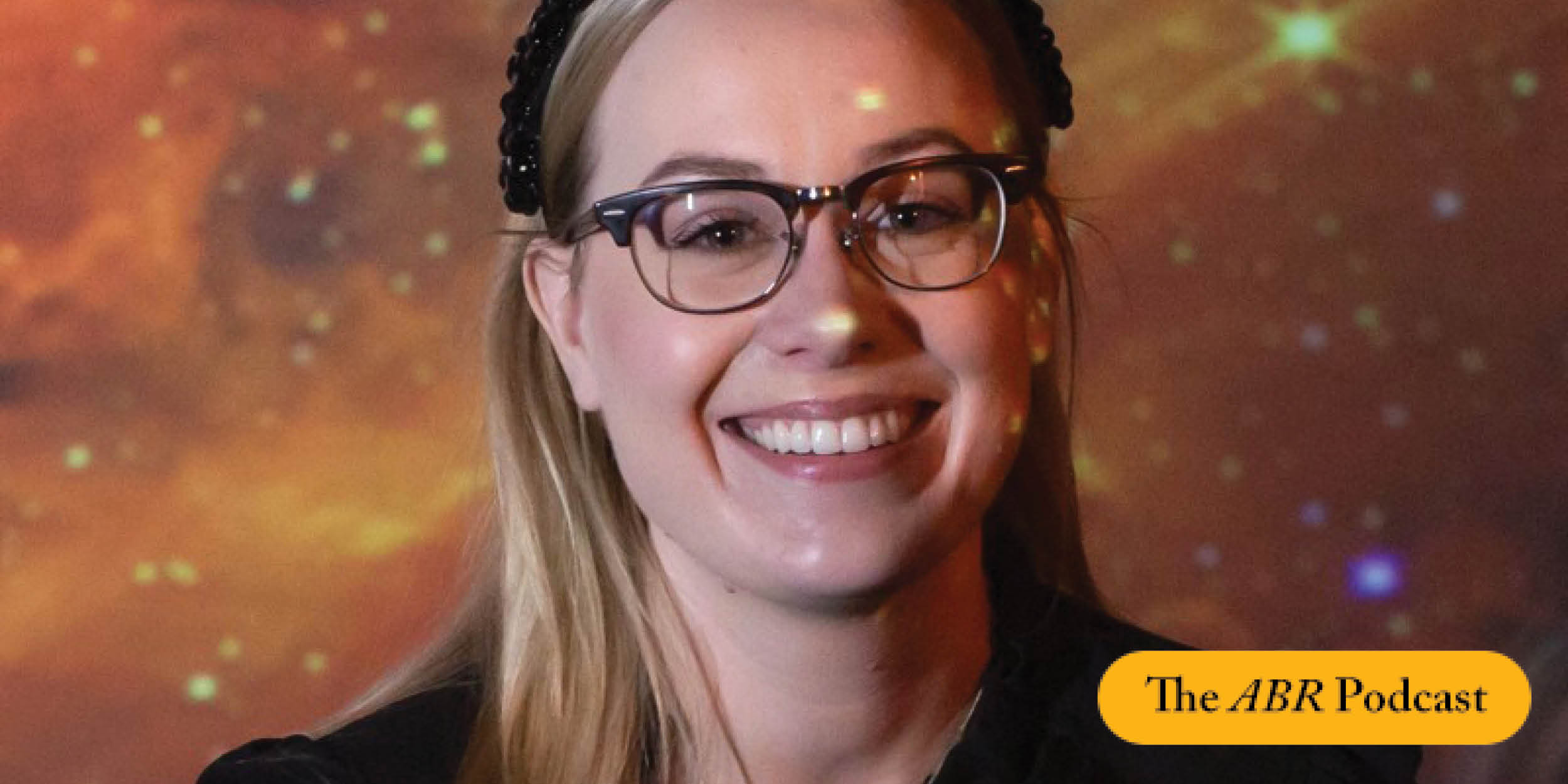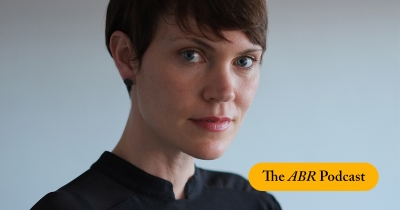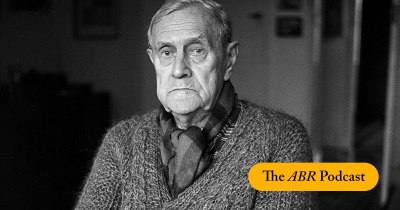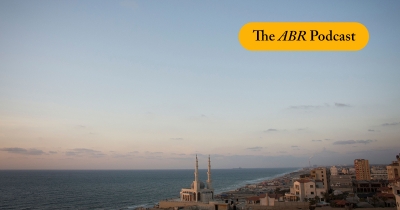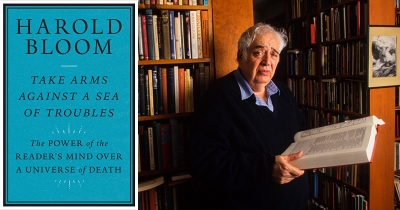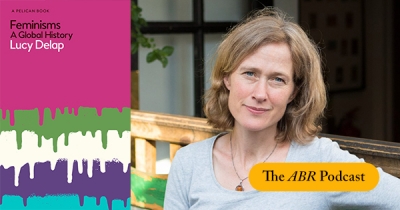Podcast
The ABR Podcast
Released every Thursday, the ABR podcast features our finest reviews, poetry, fiction, interviews, and commentary.
Subscribe via Apple Podcasts, Stitcher, Google, or Spotify, or search for ‘The ABR Podcast’ on your favourite podcast app.
A truly probabilistic universe
One hundred years of heated debate and mind-bending physocs
This week on The ABR Podcast, Sara Webb investigates the heated debates and mind bending science of quantum physics. As Webb writes, the ‘universe exists on an unimaginable scale’, its physics strange but wondrous.
Sara Webb is the inaugural ABR Science Fellow and an astrophysicist at Swinburne University of Technology. She is the author of The Little Book of Cosmic Catastrophes (2024), was made a Superstar of STEM in 2022, and was chosen as a Forbes Asia 30 Under 30 in Science & Healthcare in 2025. She specialises in AI-driven transient astronomy, applying machine learning to large-scale survey data to uncover fast cosmic events. Here is Sara Webb with ‘A truly probabilistic universe: One hundred years of heated debate and mind-bending physics’, published in the December issue of ABR.
Recent episodes:
In 2020, the Victorian government declared it would establish a Truth and Justice process to ‘recognise historic wrongs and address ongoing injustices for Aboriginal Victorians’. The Yoo-rrook Justice Commission was announced in March this year as the governing body of this process, one to be led by five commissioners and invested with the powers of a royal commission. In today’s episode, Paul Muldoon reads his essay from the July issue, ‘The prison of the past’, which considers the future challenges and complexities facing the commission. As he writes: ‘In truth and reconciliation, “healing” has come to assume a central importance. But exactly who or what is being healed?’
... (read more)As the world realigns itself in the wake of a global pandemic, ABR turns its thoughts to the various forms – individual and institutional, material and more intangible – that recovery may take. In 'Poetry in times of recovery', we asked a number of Australian poets to share the works that best capture how recovery can look, sound, and feel. Today’s episode builds on the popularity of our ‘Poetry in troubled times’ episodes, released in 2020.
... (read more)In today's episode, Josephine Rowe – winner of the 2016 ABR Elizabeth Jolley Short Story Prize – reads a new short story, 'Bunker', which appears in the June issue of ABR. Josephine has published three short story collections and a novel called A Loving, Faithful Animal.
... (read more)Patrick White, winner of the Nobel Prize for Literature in 1973, has long been considered Australia’s finest novelist. And yet, the thirtieth anniversary of his death in 2020 passed by with barely a murmur. Was this merely a consequence of the pandemic, or are there larger cultural forces at play? In today's episode, historian and ABR Calibre prize-winning essayist Martin Thomas considers the posthumous neglect of the great Australian writer, who once described himself as a ‘Londoner at heart’ and who continues to challenge jingoistic and complacent forms of nationalism.
... (read more)In today's episode, Ilana Snyder – President of the New Israel Fund Australia – places the recent turmoil in Israel and Palestine in the context of the all-too-familiar cycle of tension, violence, and ceasefire that has beset the region for decades. What might it take for there to be an enduring peace? Snyder examines this question, while also identifying what sets the most recent violence apart from previous eruptions: an increase in ‘intercommunal violence’ that ‘has pitted Jewish and Arab citizens of Israel against one another on streets where they have lived side by side for decades’.
... (read more)Richard Flanagan's new work, Toxic, is a startling exposé on Tasmania's salmon farming industry. From genetically altered 'frankenfish' to the use of dangerous chemicals to turn 'dead-grey flesh a marketable red', the industrial machinations uncovered in Flanagan's new work are stomach-churning. As James Boyce writes in his review, 'After the publication of Toxic, I doubt Tasmania will ever be the same again.'
... (read more)Throughout her childhood, Krissy Kneen was surrounded by make-believe. At the centre of this enchanted world was her grandmother Lotty, whose prodigious fabulations not only kept her family in thrall, but also hid painful memories of poverty and forced migration. In her new memoir, The Three Burials of Lotty Kneen, Kneen retraces her grandmother's journey from Slovenia to Australia. In today's episode, Kneen sits down with her friend Beejay Silcox, a past ABR Fellow and longtime contributor, to discuss their serendipitous meeting and Kneen's journey to uncover her family's history.
... (read more)Harold Bloom was one of the last of the so-called ‘Yale critics’, who shaped the terrain of literary criticism in the latter half of the twentieth century. Bloom died in October 2019, and his final book, Take Arms Against a Sea of Troubles, arrives two years after his death and caps a long and controversial career. In this issue, James Ley surveys this swansong by a critic who ‘came to style himself less as a theorist and more as a theologian of literature: the high priest and only admitted member of his own private religion’.
... (read more)African American Poetry is an ambitious and wide-ranging collection of Black poetry. Edited by Kevin Young, a fellow poet and poetry editor of The New Yorker, the collection spans contemporary writers such as the Pulitzer Prize-winner Jericho Brown to literary giants such as Langston Hughes, Gwendolyn Brooks, and Derek Walcott. As David Mason writes, 'It needs to be said and said again just how profoundly American this poetry is, how it enriches culture and should not be ignored among the more conventionally canonised.'
... (read more)Written by award-winning historian Lucy Delap, Feminisms challenges the obfuscating binaries of the 'feminist waves'. Its main focus looks into aspects of feminism that have often been in conflict or overlooked by contemporary movements. Zora Simic reviews the book for our current April issue, and describes it as ‘building on and acknowledging the work of those who came before, while bringing new ideas and energy to the task.' Listen to Zora read her full review in today's episode.
... (read more)
